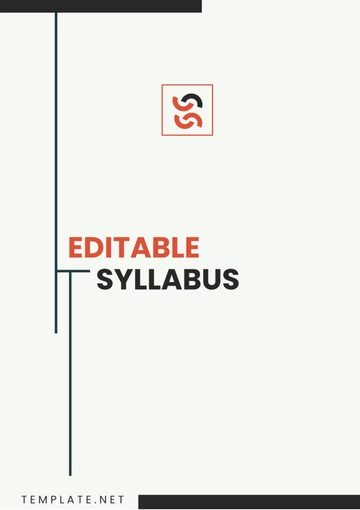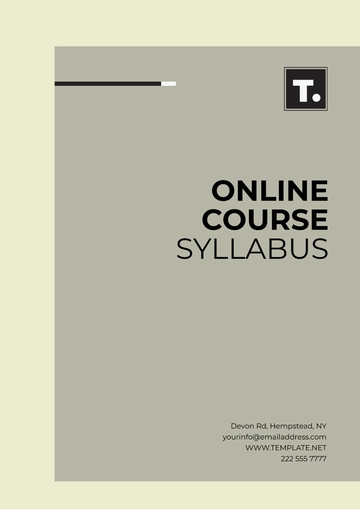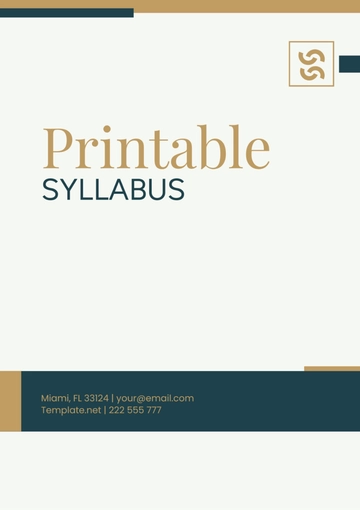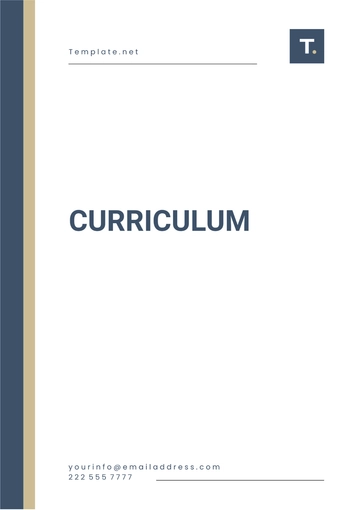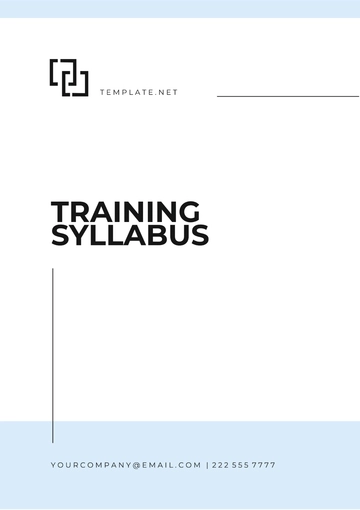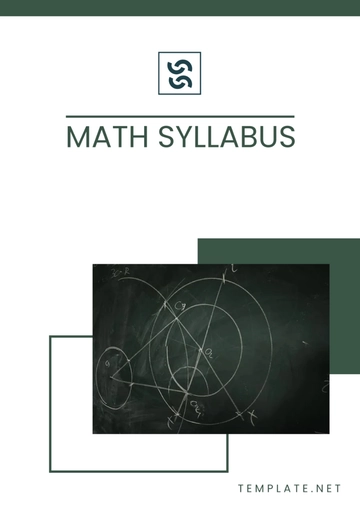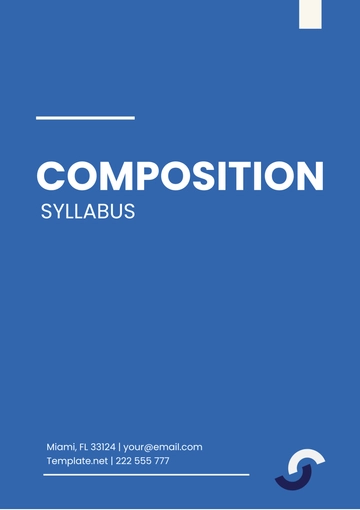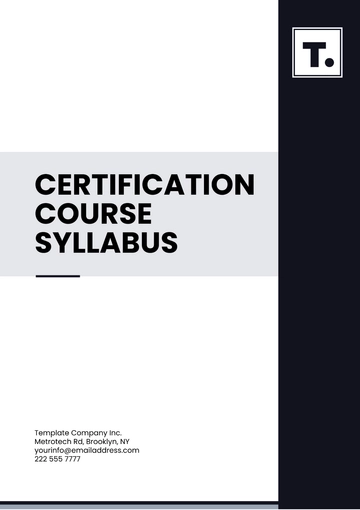Free Health Economics Syllabus
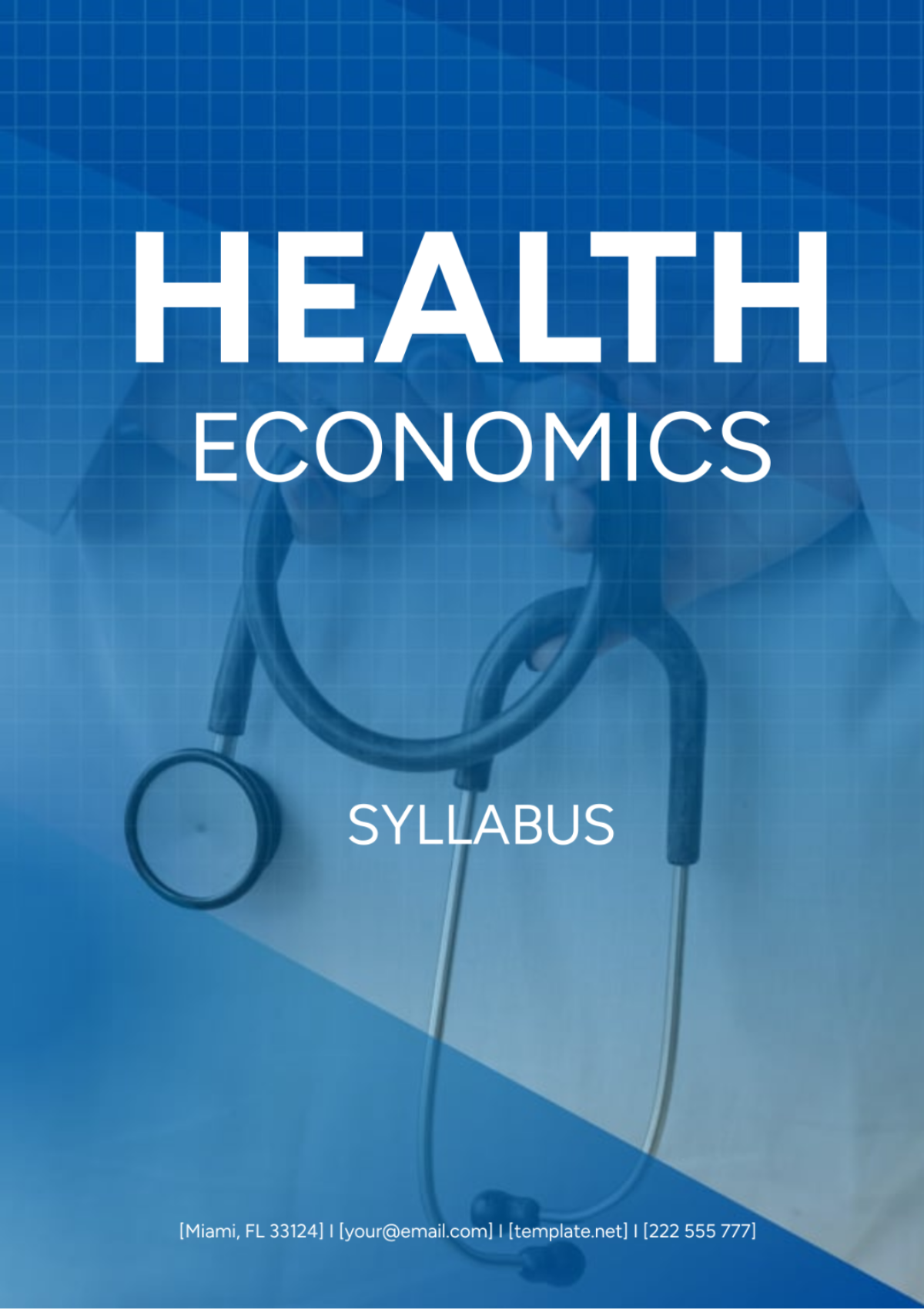
Health Economics Course
Course Title | [COURSE TITLE] |
Course Code | [COURSE CODE] |
Institution Hours | [INSTITUTION HOURS] |
Class Location | [CLASS LOCATION] |
Class Time | [CLASS TIME] |
Class Duration | [DATE] - [DATE] |
1. Course Description
This course provides an overview of the economic principles and methodologies applied to the analysis of healthcare systems, policies, and practices. Students will explore topics such as healthcare financing, insurance markets, cost-benefit analysis, and the role of government in healthcare. Emphasis will be placed on understanding the economic drivers behind healthcare decisions, evaluating healthcare interventions, and addressing issues of equity and efficiency in healthcare delivery.
2. Instructor Information
Instructor: [YOUR NAME]
Contact: [YOUR EMAIL]
Institution: [YOUR COMPANY NAME]
3. Learning Objectives
To provide an understanding of economic concepts and theories related to healthcare systems and policies.
Appreciate the complexity of health issues and their potential solutions in economic terms.
To foster critical thinking in issues of health economics.
Develop skills in interpreting health economic data and literature.
To familiarize students with current research strategies in healthcare economics.
4. Course Schedule
Week | Topic | Reading |
|---|---|---|
1 | Introduction to Health Economics | Chapter 1: Introduction to Health Economics |
2 | Demand for Healthcare Services | Chapter 2: Healthcare Demand and Utilization |
3 | Supply of Healthcare Services | Chapter 3: Healthcare Supply and Production |
4 | Healthcare Financing and Insurance Markets | Chapter 4: Healthcare Financing and Insurance Markets |
5 | Cost-Benefit Analysis in Healthcare | Chapter 5: Cost-Benefit Analysis in Healthcare |
6 | Economic Evaluation of Healthcare Interventions | Chapter 6: Economic Evaluation of Healthcare Interventions |
7 | Healthcare Policy and Regulation | Chapter 7: Healthcare Policy and Regulation |
8 | Healthcare Systems Around the World | Chapter 8: Comparative Healthcare Systems |
5. Required Reading and Materials
The economics of health and health care - Sherman, Folland
Introduction to Health Economics - David Wonderling
Health economics: policy and law - Volpp, Kevin G
Health Economics: Theory, Insights, and Industry Studies, 6th edition - Santerre, Neun
Online resources and articles, will be shared during the course
6. Assignments and Assessments
Assignments and Assessments | Weight |
|---|---|
Class Participation and Discussion | 20% of Final Grade |
Mid-term Exam | 30% of Final Grade |
Final Exam | 30% of Final Grade |
Individual Project | 20% of Final Grade |
7. Course Policy
Attendance: Regular attendance is expected, with participation contributing to the overall grade.
Academic Integrity: All work must be original and properly cited. Plagiarism or cheating will result in disciplinary action.
Communication: Students are encouraged to communicate with the instructor regarding any concerns or questions about the course.
Late Work: Late assignments will be subject to a penalty unless prior arrangements are made with the instructor.
8. Grading Policy
Component | Weight |
|---|---|
Class Participation | 20% |
Midterm Examination | 30% |
Project | 20% |
Final Exam | 30% |
9. Additional Resources:
World Health Organization (WHO)
Centers for Medicare & Medicaid Services (CMS)
National Bureau of Economic Research (NBER)
Health Affairs Journal
Disclaimer
The outlined curriculum, assessments, and expectations in the given Health Economics course syllabus may need amendment given the evolving nature of academia and possible unexpected changes. The teacher has the discretion to make necessary modifications to ensure the best learning experience, and will communicate timely changes. Students' responsibility includes regularly checking for syllabus updates, participating actively, clarifying doubts and offering feedback for a beneficial education. This emphasizes the resilience, versatility, and essential communication in academia.
- 100% Customizable, free editor
- Access 1 Million+ Templates, photo’s & graphics
- Download or share as a template
- Click and replace photos, graphics, text, backgrounds
- Resize, crop, AI write & more
- Access advanced editor
Introducing the Health Economics Syllabus Template from Template.net. This comprehensive resource is fully editable and customizable to suit your course needs. Crafted with precision, it's seamlessly editable in our Ai Editor Tool, offering unparalleled convenience and flexibility. Elevate your syllabus creation effortlessly with this dynamic template.

